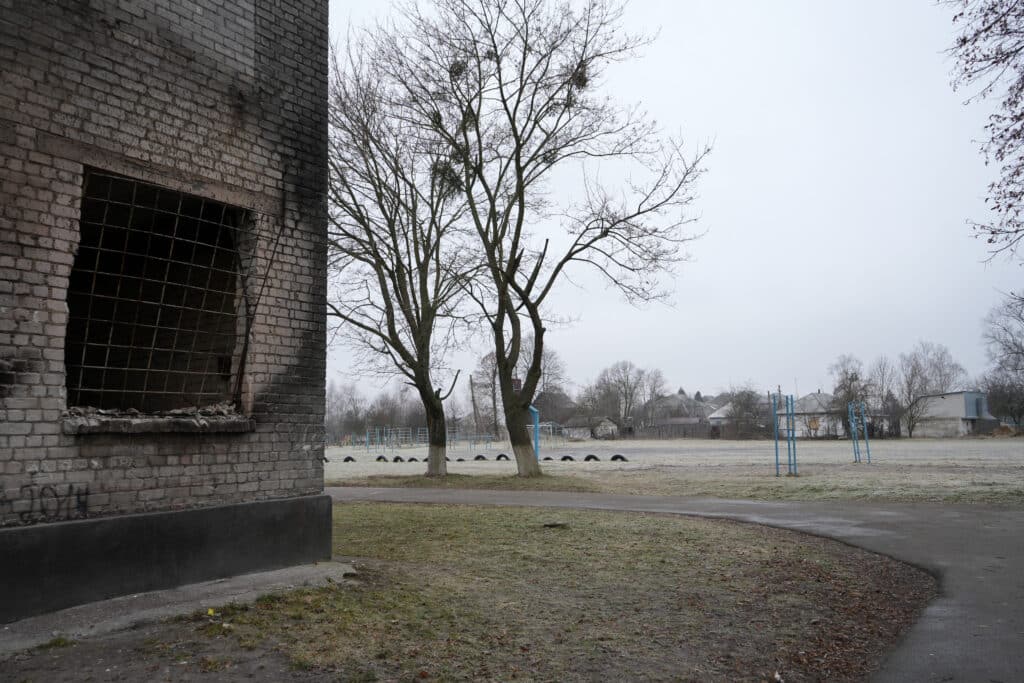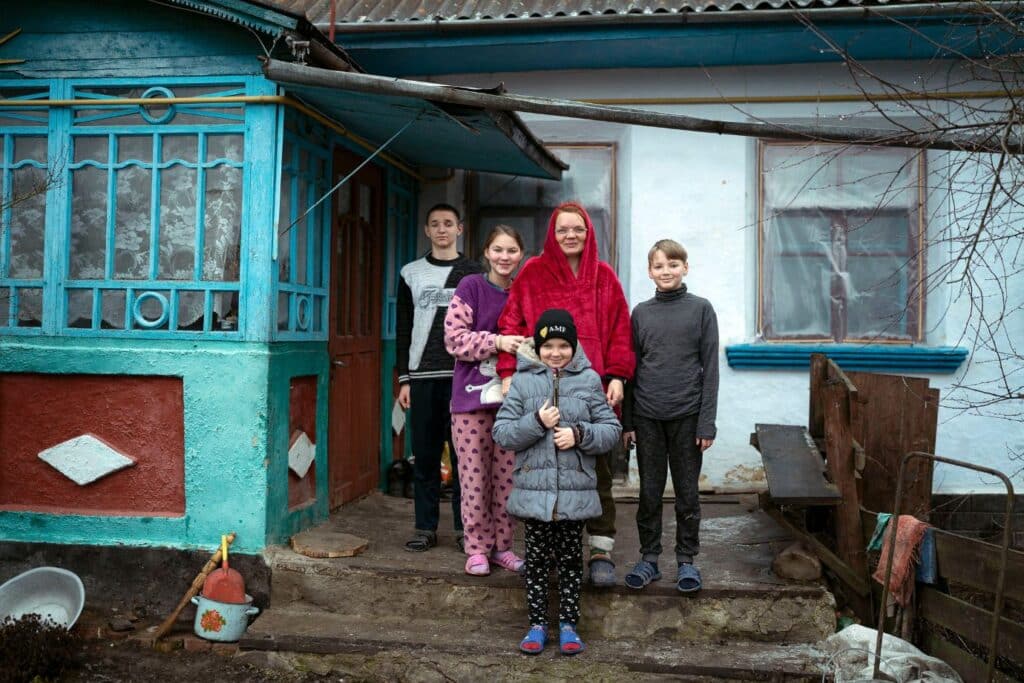At least 3.6 million people in Ukraine are in urgent need of gender-based violence services, as the war with Russia continues to disproportionately affect women and girls.
This Saturday marks two years since President Vladimir Putin sent Russian troops to invade Ukraine on February 24 2022.
Between the day of invasion and the beginning of 2023, almost 2,300 women and girls were killed, according to UN Women. This figure, however, is likely to be much higher.
The war has damaged any progress on gender equality in Ukraine, with the conflict deepening gender divides, exacerbating harmful stereotypes and heightening the risk of gender-based violence.

Daryna is a 21-year-old activist working with NGO Girls in Ukraine and is witnessing a negative transformation in the way women and girls are treated in the country.
“I work with young women and girls, and I see the transformation happening throughout Ukraine as a direct impact of the war,” Daryna said.
Daryna points to the “masculinisation” of society and culture in Ukraine as a result of the war and the declining concern for gender equality. A survey from the United Nations Population Fund (UNFPA) found just two per cent of young Ukrainians are worried about gender equality, down from nine per cent in 2021.
“We can especially see the so-called masculinisation as a social and cultural phenomenon,” Daryna said.
“This puts young women and girls at risk, and subjects them to gender-based and emotional violence.”
The impact of the war on women and girls extends beyond Ukraine’s borders, with millions fleeing the country to seek refuge in Poland, Moldova and Romania.
Olga, an assistant manager at Patchwork providing support for displaced Ukrainian mothers and children living with disabilities in Poland, sees first-hand how much the war has affected them two years since Russia’s invasion.
“I can call these women heroes,” Olga said. “[As caregivers], they have been doing hard work and this hard work never stops.
“I have dealt with and I have support children with many health issues. But I will never forget the scene I saw when a woman, in order to save the life of her child, carried her child 40km to a checkpoint to leave the city after the arrival of Russian troops.”
‘No end in sight.’
Plan International’s Ukraine Response Director, Sven Coppens, said the not-for-profit organisation is deeply concerned for women and girls in Ukraine, especially the millions in need of gender-based violence services.
“With no end in sight to the war in Ukraine, we have grave concerns that the gendered impacts of this devastating crisis are being overlooked and putting girls’ and women’s rights at risk,” Coppens said.
“Through our work with partners across Ukraine and in neighbouring countries, we have seen how the toll of living through conflict is deepening harmful gender stereotypes, and at the same time, fuelling gender-based violence.
“We are increasingly concerned that gender equality will suffer setbacks as a result, with potentially profound consequences for generations to come.”
There is no doubt about the disproportionate effect the war has had on women and girls in Ukraine. Of the 7.9 million Ukranian refugees, 90 per cent are women and children. Around 68 per cent of people internally displaced in Ukraine are women.
“We cannot stress enough that the war in Ukraine is still ongoing, that the humanitarian needs remain vast, and are still growing,” Coppens said.
In 2020, prior to Russia’s invasion, Ukraine was ranked 59th out of 146 countries in the UN’s Global Gender Gap Report. By 2022, their ranking slipped to 81st.
Political participation of women in Ukraine is low: the Gender Equality Index from 2021 ranked Ukraine 103rd out of 156 countries for political participation. Ukraine moved up to 100th place in 2022.
Feature Image credit: Plan International


